
Born
August 20th, 1944
Passed Away
May 21st, 1991
Popularly Known as
Rajiv Gandhi
Occupation
Politician
Spouse
Sonia Gandhi
Religion
Hindu
Native
Delhi
Country
India
अथ चैनं नित्यजातं नित्यं वा मन्यसे मृतम् ।
तथापि त्वं महाबाहो नैवं शोचितुमर्हसि ॥
Shradhanjali By
Shradhanjali .com
Biography of Mr. Rajiv Feroze Gandhi
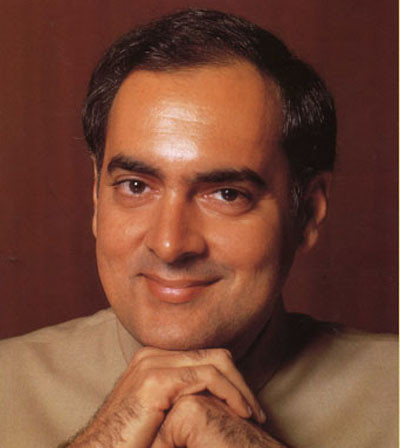
Rajiv Ratna Gandhi, 20 August 1944 – 21 May 1991 was the sixth Prime Minister of India, serving from October 1984 to December 1989. He took office after his mother's assassination on October 31, 1984; he himself was assassinated on May 21, 1991. He became the youngest Prime Minister of India when he took office at the age of 40.
Rajiv Gandhi was the elder son of Indira and Feroze Gandhi. He was educated at Cambridge, where he met Italian-born Sonia Maino, whom he later married. After Cambridge, he became a professional pilot for Indian Airlines. He remained aloof from politics despite his family's political prominence. It was only following the death of his younger brother Sanjay Gandhi in 1980 that Rajiv entered politics. Following the assassination of his mother in 1984 after Operation Blue Star, Indian National Congress party leaders nominated him to be Prime Minister.
Rajiv Gandhi led the Congress to a major election victory in 1984 soon after, amassing the largest majority ever in Indian Parliament. The Congress party won 411 seats out of 542. He began dismantling the License Raj - government quotas, tariffs and permit regulations on economic activity - modernized the telecommunications industry, the education system, expanded science and technology initiatives and improved relations with the United States. Unequal effects of Liberalisation - Dismantling the license raj in India.
In 1988, Rajiv reversed the coup in Maldives antagonising the militant Tamil outfits such as PLOTE."Indian Troops end coup in Maldives". New York Times. 1988-11-05. He was also responsible for first intervening and then sending Indian troops (Indian Peace Keeping Force or IPKF) for peace efforts in Sri Lanka in 1987, which soon ended in open conflict with the Liberation Tigers of Tamil Eelam (LTTE) group."IPKF should not have been sent to Sri Lanka". In mid-1987, his alleged Bofors scandal broke his honest, corruption-free image and resulted in a major defeat for his party in the 1989 elections.
Rajiv Gandhi remained Congress President until the elections in 1991. While campaigning, he was assassinated by the Liberation Tigers of Tamil Eelam (LTTE or Tamil Tigers) group. His widow Sonia Gandhi became the leader of the Congress party in 1998, and led the party to victory in the 2004 elections. His son Rahul Gandhi is a Member of Parliament and the General Secretary of All India Congress Committee.
Rajiv Gandhi was posthumously awarded the Highest National Award of India, Bharat Ratna, joining a list of 40 luminaries, including Indira Gandhi.
Rajiv Gandhi was an active amateur radio operator, and used the callsign VU2RG.
Rajiv Gandhi was born into India's most famous political family. His grandfather was the Indian independence leader Jawaharlal Nehru, who was the India's first Prime Minister after independence.
Rajiv is not related to Mahatma Gandhi, although they share the same surname. Rajiv's father, Feroze, was one of the younger members of the Indian National Congress party, and had befriended the young Indira, and also her mother Kamala Nehru, while working on party affairs at Allahabad. Subsequently, Indira and Feroze grew closer to each other while in England, and they married, despite initial objections from Jawaharlal due to his religion (Zoroastrianism). "We aren't family".
Rajiv was born in 1944 in Mumbai, during a time when both his parents were in and out of British prisons. In August 1947, Jawaharlal Nehru became the prime minister of independent India, and the family settled in Allahabad, and then at Lucknow, where Feroze became the editor of The National Herald newspaper (founded by Motilal Nehru). However, the marriage was faltering and, in 1949, Indira and the two sons moved to Delhi to live with Jawaharlal, ostensibly so that Indira could assist her father in his duties, acting as official hostess, and helping run the huge residence. Meanwhile, Feroze continued alone in Lucknow. Nonetheless, in 1952, Indira helped Feroze manage his campaign for elections to the first Parliament of India from Rae Bareli.
After becoming an MP, Feroze Gandhi also moved to Delhi, but "Indira continued to stay with her father, thus putting the final seal on the separation." Relations were strained further when Feroze challenged corruption within the Congress leadership over the Haridas Mundhra scandal. Jawaharlal suggested that the matter be resolved in private, but Feroze insisted on taking the case directly to parliament:
"The Parliament must exercise vigilance and control over the biggest and most powerful financial institution it has created, the Life Insurance Corporation of India, whose misapplication of public funds we shall scrutinise today." Feroze Gandhi, Speech in Parliament, 16 December 1957.
The scandal, and its investigation by justice M C Chagla, lead to the resignation of one of Nehru's key allies, finance minister T.T. Krishnamachari, further alienating Feroze from Jawaharlal.
After Feroze Gandhi had a heart attack in 1958, the family was reconciled briefly when they vacationed in Kashmir. However, Feroze died soon afterwards from a second heart attack in 1960.
By the time of his father's death, Rajiv was away at a private boarding school for boys: initially at the Welham Boys' School and later The Doon School, both located at Dehradun, Uttarakhand. He was sent to London in 1961 to study his A-levels. In 1962, he was offered a place at Trinity College, Cambridge to study engineering. Rajiv stayed at Cambridge until 1965 and left the university without a degree mainly because he did not appear in the final Tripos examinations. In 1966, he was offered a place at the Imperial College London. He again left Imperial College after a year without a degree.
In the January of 1965, he met Italian Antonia (Sonia) Maino in Varsity restaurant in Cambridge. Antonia was studying English at Lennox School of Languages (which was not associated with the University of Cambridge). Rajiv and Sonia were married in 1968 in India.
Rajiv began working for Indian Airlines as a professional pilot while his mother became Prime Minister in 1966. He exhibited no interest in politics and did not live regularly with his mother in Delhi at the Prime Minister's residence. In 1970, his wife gave birth to their first child Rahul Gandhi, and in 1972, to Priyanka Gandhi, their second. Even as Rajiv remained aloof in politics, his younger brother Sanjay became a close advisor to their mother.
- Entry into politics
Following his younger brother's death in 1980, Gandhi was pressured by Indian National Congress party politicians and his mother to enter politics. He and his wife were both opposed to the idea, and he even publicly stated that he would not contest for his brother's seat. Nevertheless, he eventually announced his candidacy for Parliament. His entry was criticized by many in the press, public and opposition political parties. He fought his first election from Amethi Loksabha seat. In this by-election, he defeated Lokdal leader Sharad Yadav by more than 200,000 votes. Elected to Sanjay's Lok Sabha (parliamentary) constituency of Amethi in Uttar Pradesh state in February 1981, Gandhi became an important political advisor to his mother. It was widely perceived that Indira Gandhi was grooming Rajiv for the prime minister's job, and he soon became the president of the Youth Congress - the Congress party's youth wing.
- Premiership
Gandhi was in West Bengal when his mother was assassinated on 31 October 1984 by her bodyguards. Top Congress leaders, as well as President Zail Singh pressed Rajiv to become India's Prime Minister, within hours of his mother's assassination by two of her Sikh bodyguards. Commenting on the anti-Sikh riots in the national capital Delhi, Rajiv Gandhi said, "When a giant tree falls, the earth below shakes"; a statement for which he was widely criticised. Many Congress politicians were accused of orchestrating the violence. Soon after assuming office, Rajiv asked President Zail Singh to dissolve Parliament and hold fresh elections, as the Lok Sabha completed its five year term. Rajiv Gandhi also officially became the President of the Congress party. The Congress party won a landslide victory — with the largest majority in history of Indian Parliament- giving Gandhi absolute control of government. He also benefited from his youth and a general perception of being Mr. Clean, or free of a background in corrupt politics. Rajiv thus revived hopes and enthusiasm amongst the Indian public for the Congress."End of the road". Frontline. 2005-01-02. Retrieved 2011-02-19.
- Economic policy
He increased government support for science and technology and associated industries, and reduced import quotas, taxes and tariffs on technology-based industries, especially computers, airlines, defence and telecommunications. He introduced measures significantly reducing the License Raj, allowing businesses and individuals to purchase capital, consumer goods and import without bureaucratic restrictions. In 1986, he announced a National Policy on Education to modernize and expand higher education programs across India. He founded the Jawahar Navodaya Vidyalaya System in 1986 which is a Central government based institution that concentrates on the upliftment of the rural section of the society providing them free residential education from 6th till 12 grade."Rajiv Gandhi aimed at value based education in rural India through JNVs". Pressbrief. Retrieved 2011-02-19. His efforts created MTNL in 1986, and his public call offices, better known as PCOs, helped spread telephones in rural areas."MTNL Letter". 2009-09-16. Retrieved 2011-02-19.
- Foreign policy
Gandhi began leading in a direction significantly different from his mother's socialism. He improved bilateral relations with the United States — long strained owing to Indira's socialism and close friendship with the USSR — and expanded economic and scientific cooperation. During his state visit to the Soviet Union he met with Premier Nikolai Tikhonov, Andrey Gromyko of the Ministry of Foreign Affairs and Mikhail Gorbachev.
- Security policy
Rajiv authorized an extensive police and Army campaign to contain terrorism in Punjab. A state of martial law existed in the Punjab state, and civil liberties, commerce and tourism were greatly disrupted. The Economist. Retrieved 2011-02-19. There are many accusations of human rights violations by police officials as well as by the militants during this period. It is alleged that even as the situation in Punjab came under control, the Indian government was offering arms and training to the LTTE rebels fighting the government of Sri Lanka. The Indo-Sri Lanka Peace Accord was signed by Rajiv Gandhi and the Sri Lankan President J.R.Jayewardene, in Colombo on 29 July 1987. The very next day, on 30 July 1987, Rajiv Gandhi was assaulted on the head with a rifle butt by a young Sinhalese naval cadet named Vijayamunige Rohana de Silva, while receiving the honour guard. The intended assault on the back of Rajiv Gandhi's head however glanced off his shoulder. Though the embarrassed Sri Lankan President Junius Richard Jayewardene initially attempted to pass off the bizarre assault as "Rajiv tripped a little and slightly lost his balance", Rajiv Gandhi while en route to New Delhi asserted to J.N. Dixit "Of course, I was hit." Rajiv's government also suffered a major setback when its efforts to arbitrate between the government of Sri Lanka and the LTTE rebels backfired.
With his speech while addressing the Joint Session of the US Congress and India, he famously said, "India is an old country, but a young nation; and like the young everywhere, we are impatient. I am young and I too have a dream. I dream of an India, strong, independent, self reliant and in the forefront of the front ranks of the nations of the world in the service of mankind."
- Assassination
Rajiv Gandhi's last public meeting was at Sriperumbudur on 21 May 1991, in a village approximately 30 miles from Chennai, Tamil Nadu, where he was assassinated while campaigning for the Sriperumbudur Lok Sabha Congress candidate. The assassination was carried out by the Liberation Tigers of Tamil Eelam (LTTE) suicide bomber Thenmozhi Rajaratnam (also known as Gayatri or Dhanu).
At 10:10 p.m., the assassin approached Rajiv Gandhi in a public meeting and greeted him. She then bent down to touch his feet (an expression of respect among Indians) and detonated a belt laden with 700 grams of RDX explosives tucked under her dress. The explosion killed Rajiv Gandhi and many others. The assassination was caught on film through the lens of a local photographer, whose camera and film were found at the site. The cameraman himself died in the blast but the camera remained intact.
The Rajiv Gandhi Memorial was built at the site recently and is one of the major tourist attractions of the small industrial town.
The Supreme Court judgement, by Judge Thomas, confirmed that the killing was carried out due to personal animosity of the LTTE chief Prabhakaran towards Mr Rajiv Gandhi arising out of his sending the Indian Peace Keeping Force (IPKF) to Sri Lanka and the alleged IPKF atrocities against Srilankan Tamils. However, it should be noted that the Rajiv Gandhi administration had already antagonised other Tamil militant organisations like PLOTE for reversing the military coup in Maldives back in 1988.
The judgment further cites the death of Thileepan in a hunger strike and the suicide by 12 LTTE cadres in a vessel in Oct 1987.
In the Jain Commission report, various people and agencies are named as suspected of having been involved in the murder of Rajiv Gandhi. Among them, the cleric Chandraswami was suspected of involvement, including financing the assassination.The interim report of the Jain Commission created a storm when it accused Karunanidhi of a role in the assassination, leading to Congress withdrawing its support for the I. K. Gujral government and fresh elections in 1998. LTTE spokesman Anton Balasingham told the Indian television channel NDTV that the killing was a "great tragedy, a monumental historical tragedy which we deeply regret." A memorial christened Veer Bhumi was constructed at his cremation spot in Delhi. The International Airport constructed at Hyderabad has been named after Rajiv Gandhi and was inaugurated by UPA chairperson Sonia Gandhi.
Family Tree of Mr. Rajiv Feroze Gandhi


Indira Gandhi

Feroze Gandhi

Sonia Rajiv Gandhi

Rahul Rajiv Gandhi

Priyanka Robert Vadra

Sanjay Gandhi

Robert Vadra

Paola Maino

Stefano Eugene Maino
Videos of Mr. Rajiv Feroze Gandhi
No videos
Post a tribute & share memories
Fond Memories & Remembrance
Related Profiles
Post Condolences



 Profile Home
Profile Home Biography
Biography Family
Tree
Family
Tree Photo
Album
Photo
Album Video
Video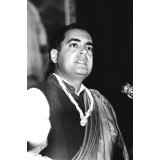
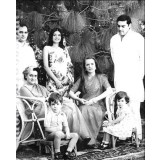
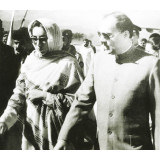
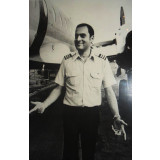
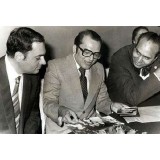
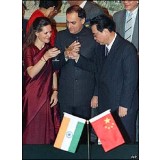
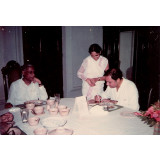
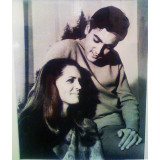
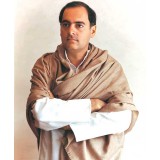
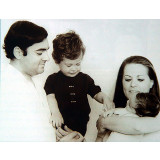
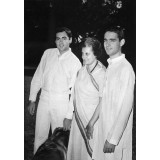
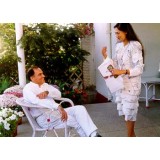
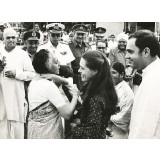
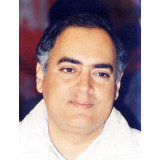
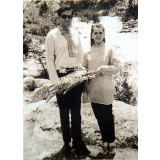
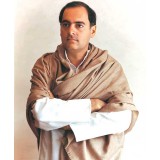
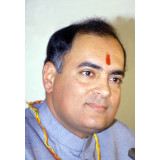
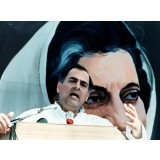
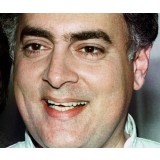
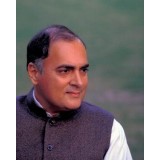
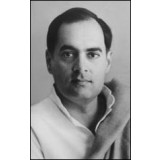
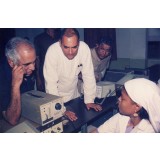
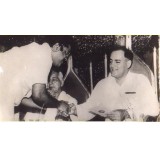
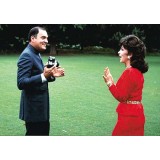
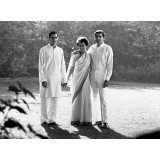
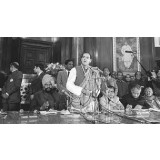
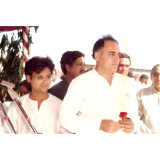
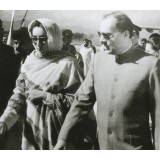
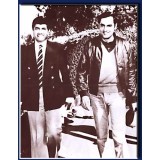
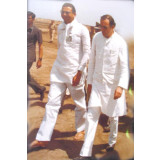
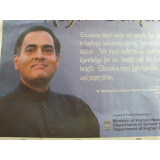
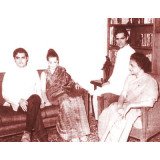
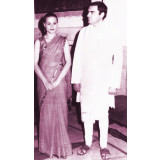
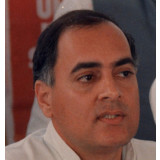
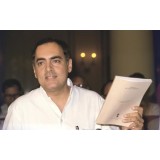
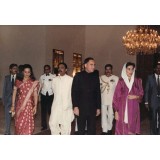
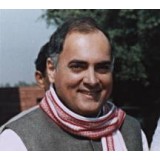
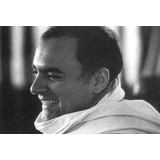
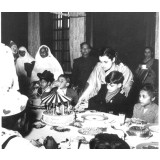
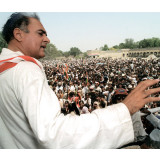
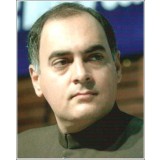
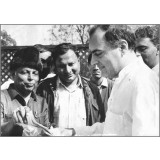

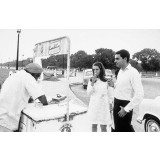
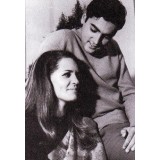
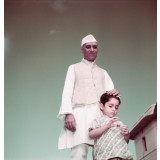
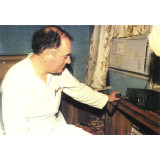
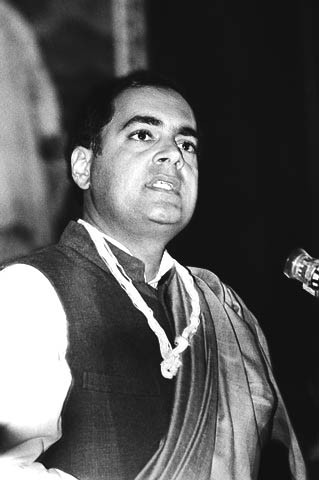



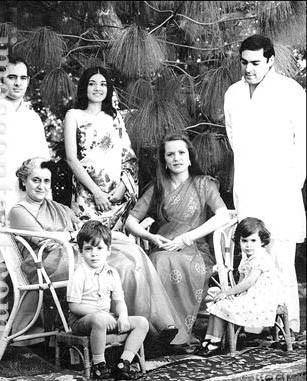
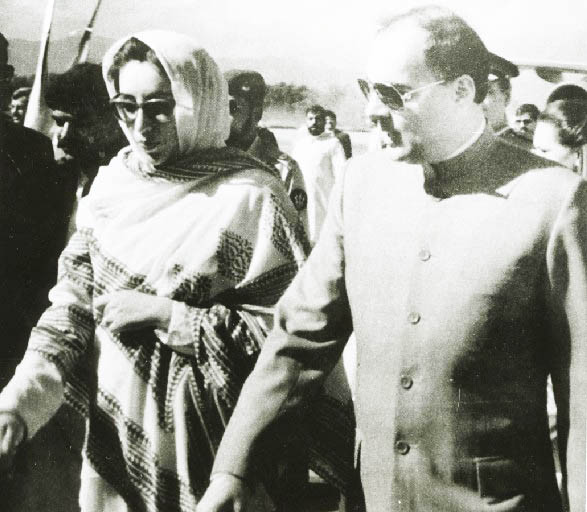
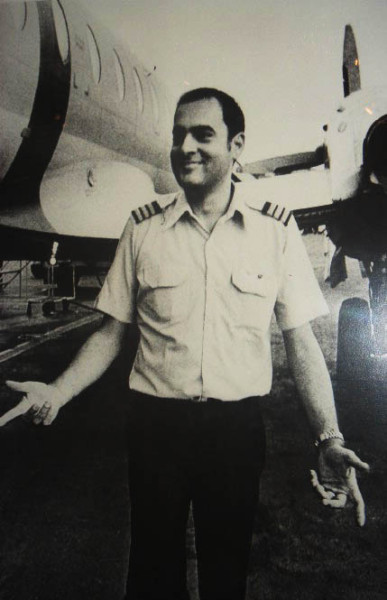
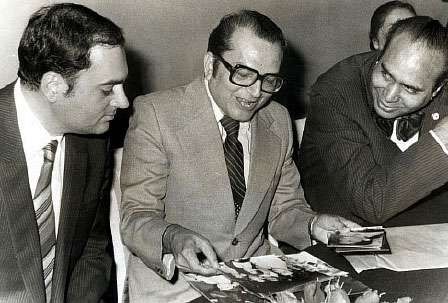
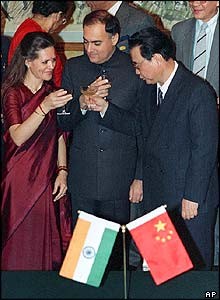
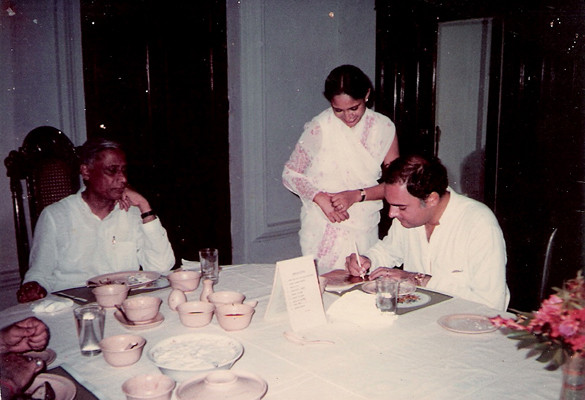
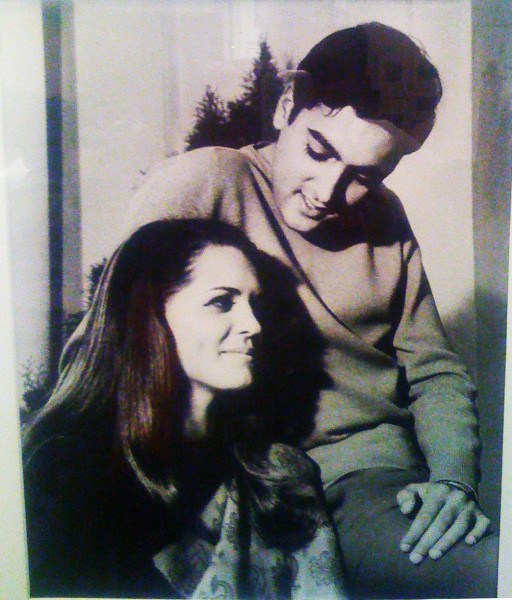
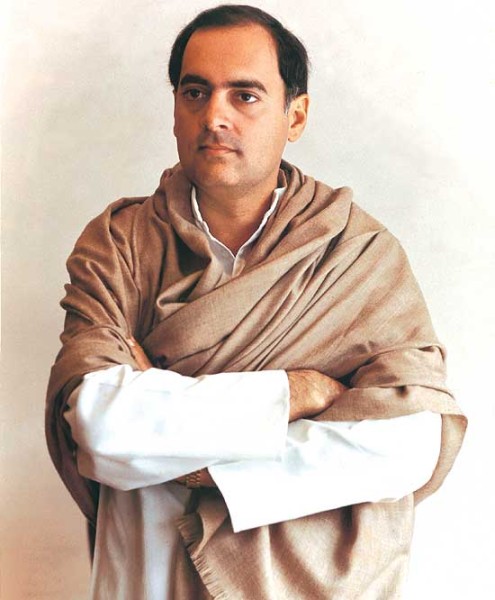
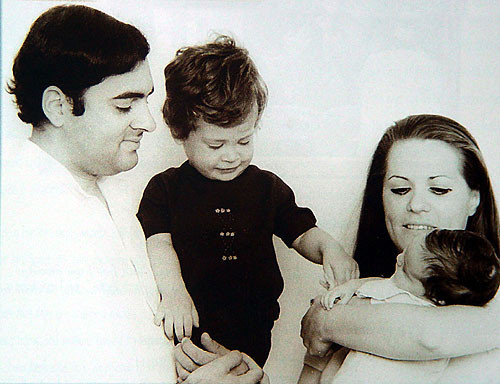
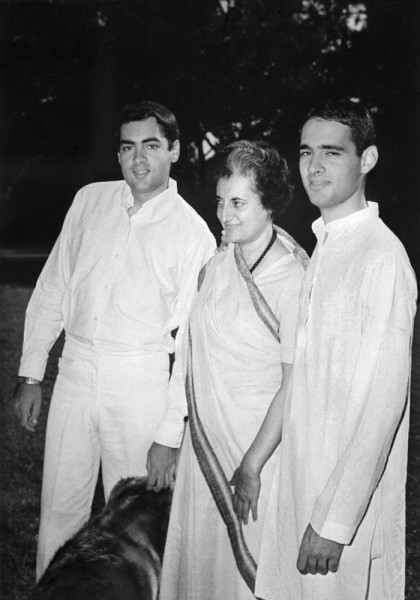
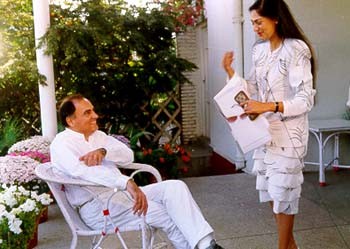
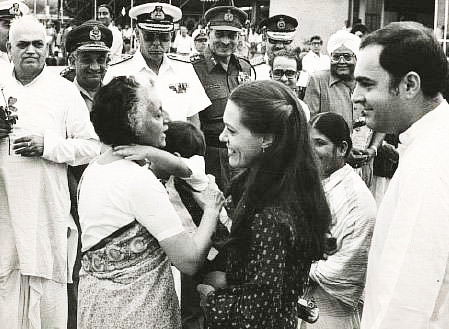
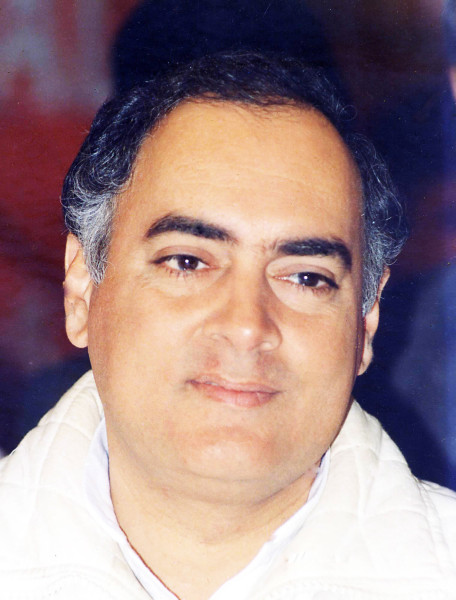
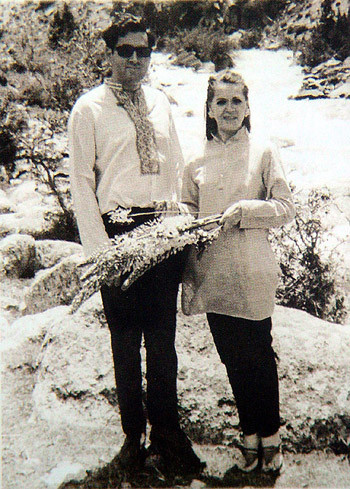
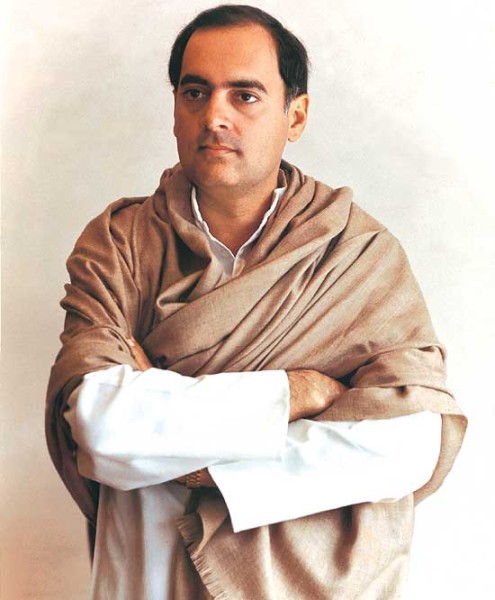
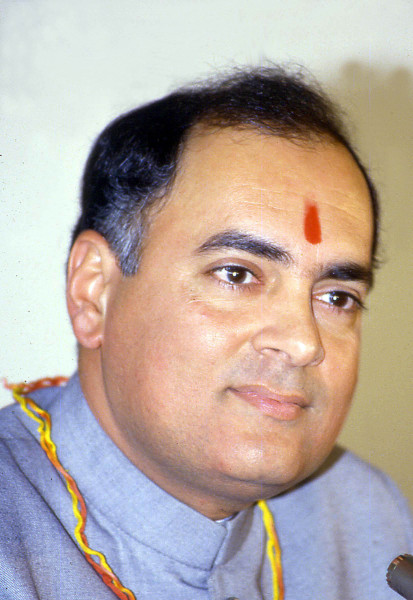
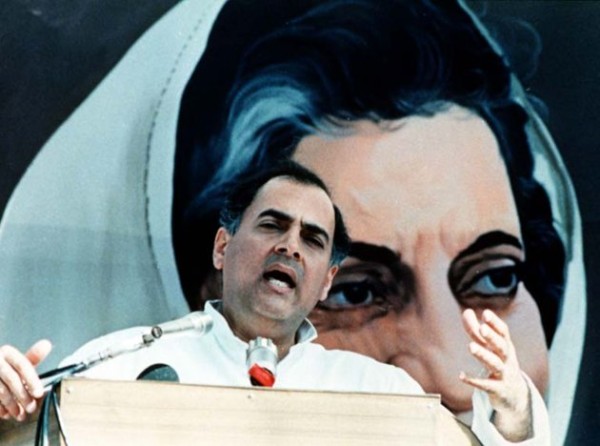
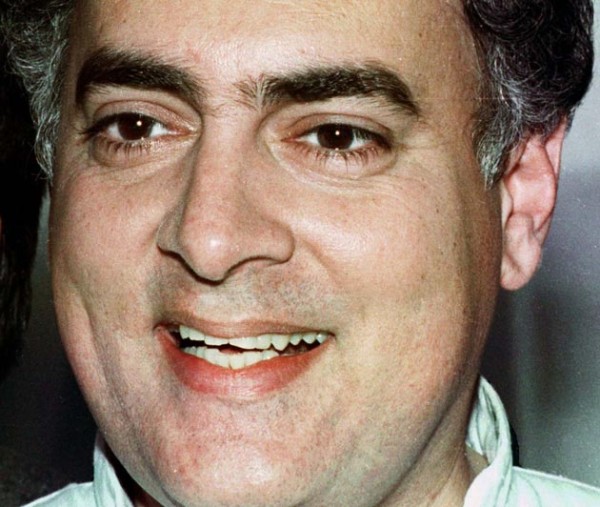
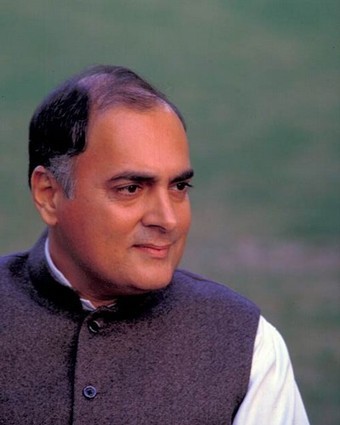
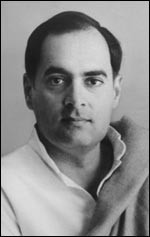
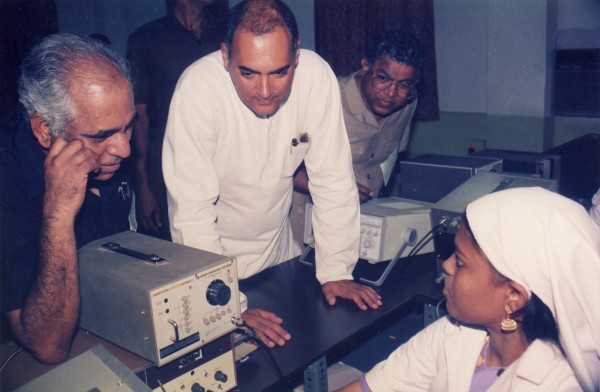
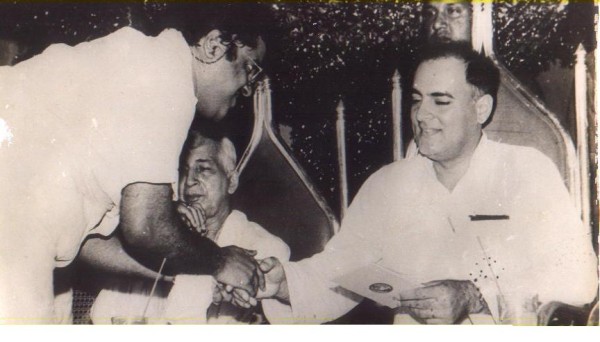
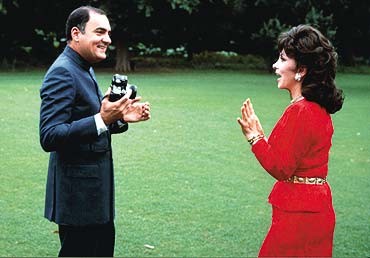
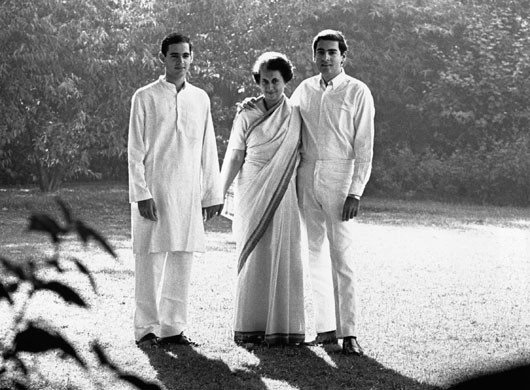
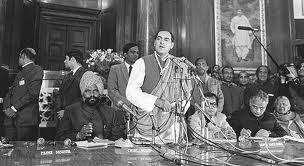
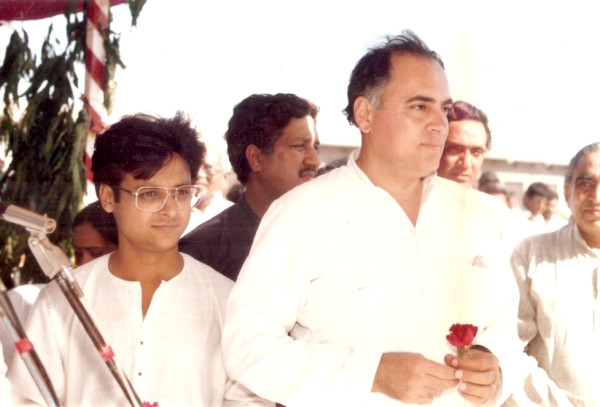
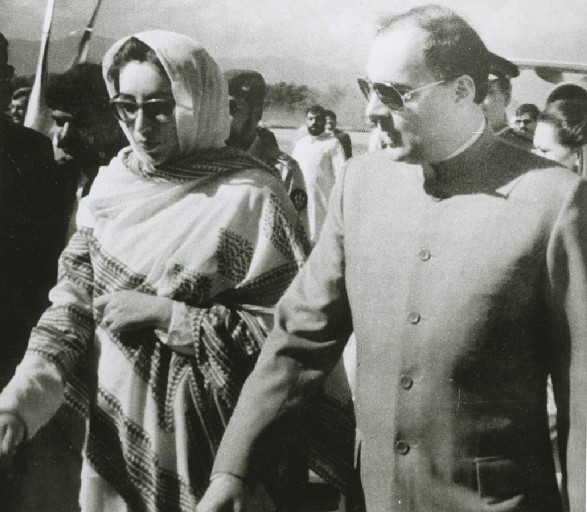
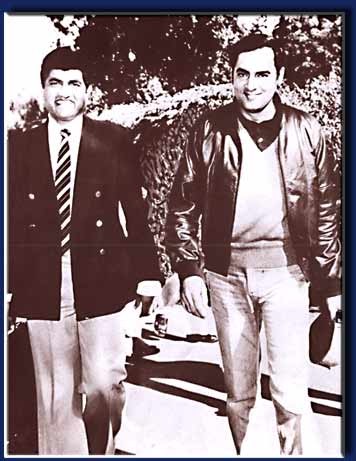
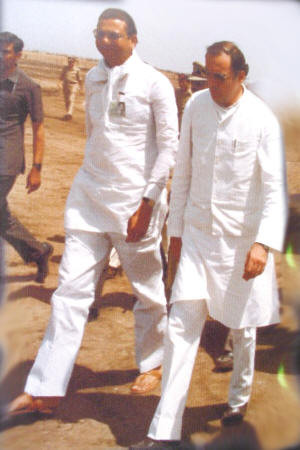
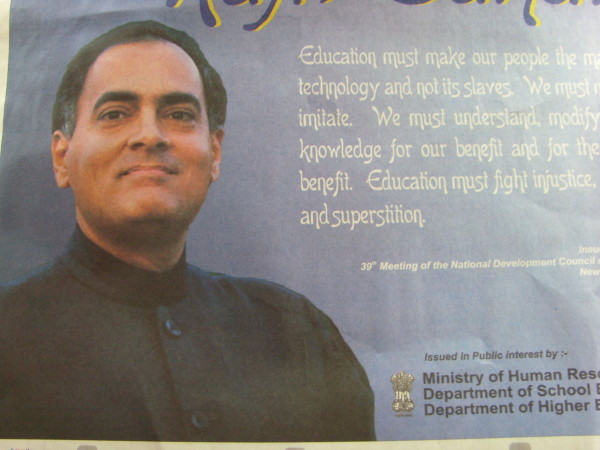
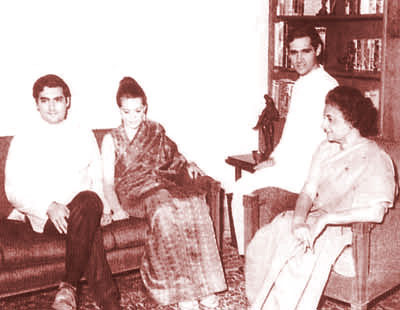
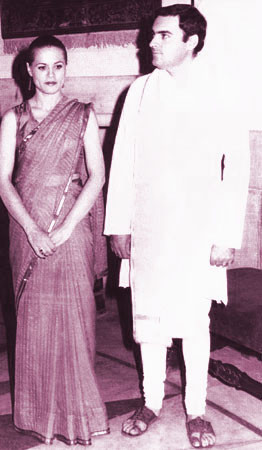

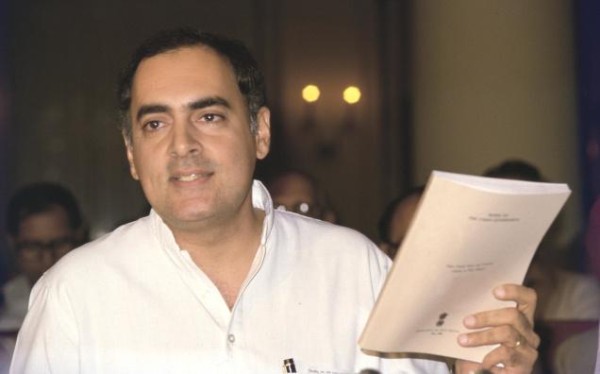
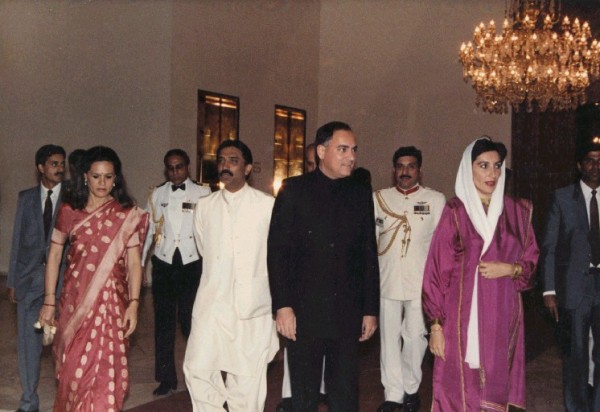
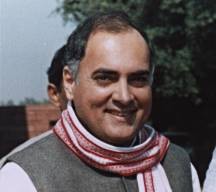
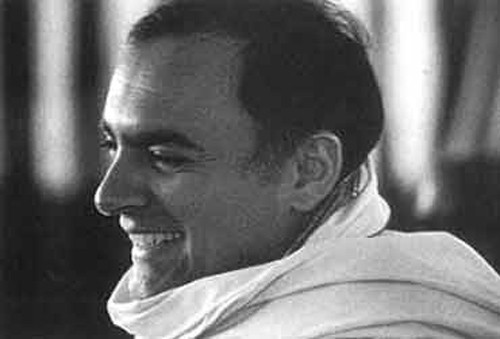
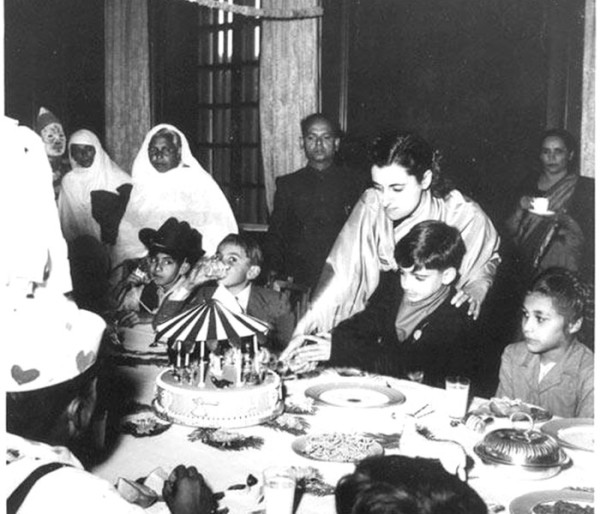
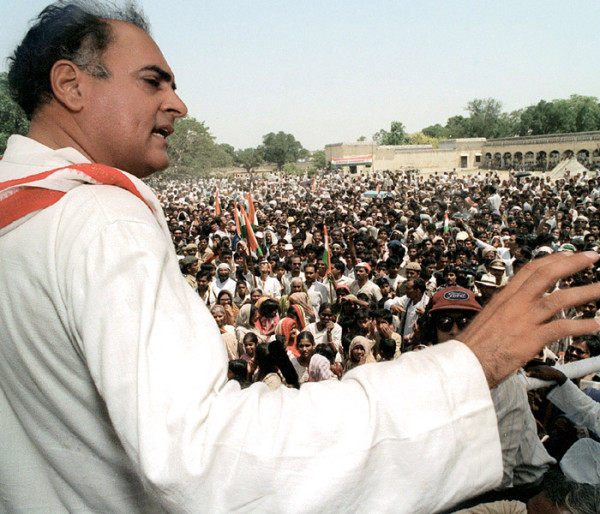
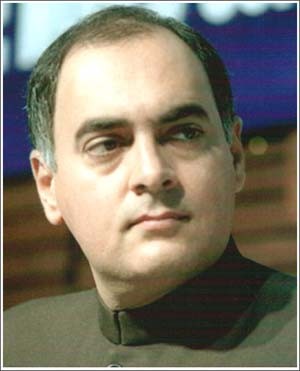
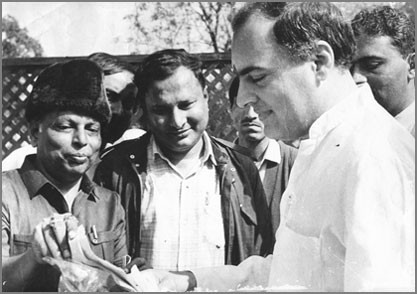
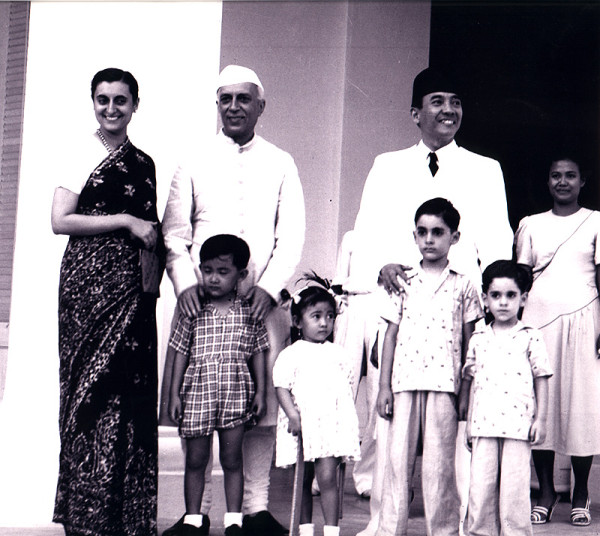
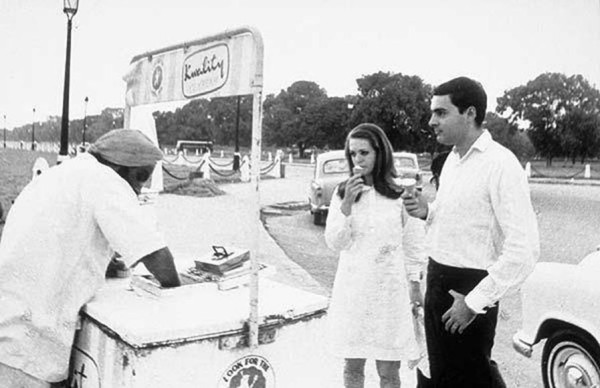
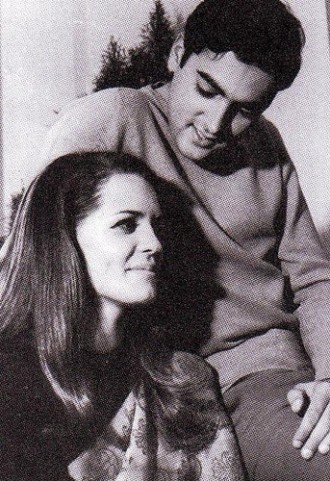
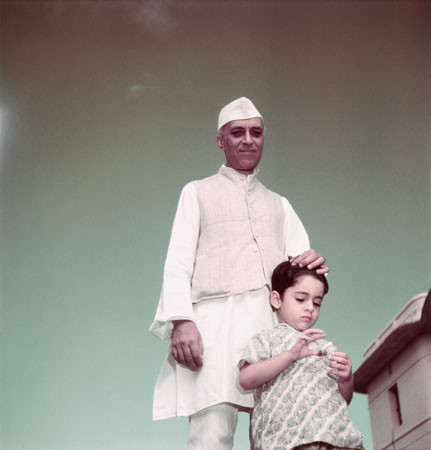
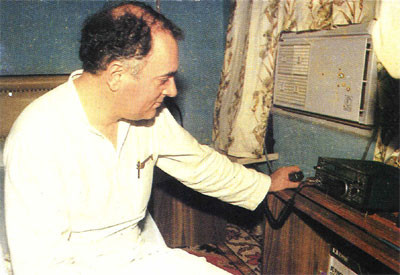
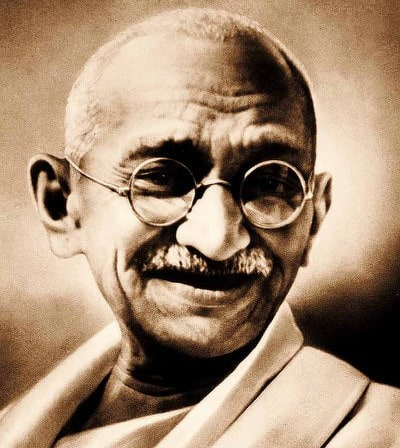
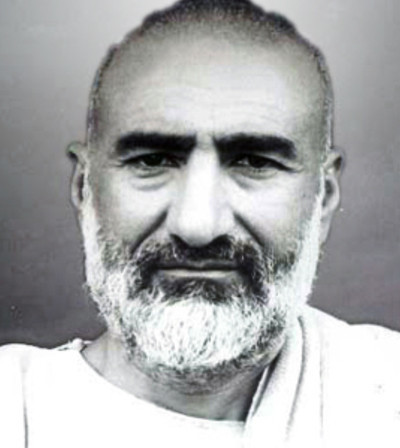
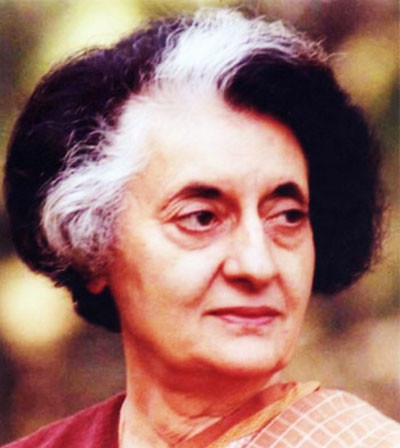
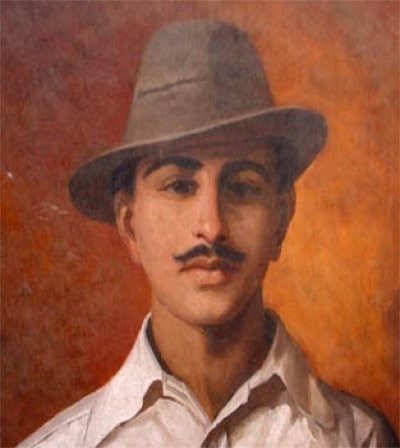
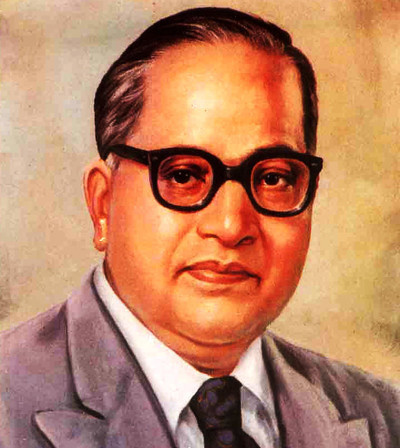
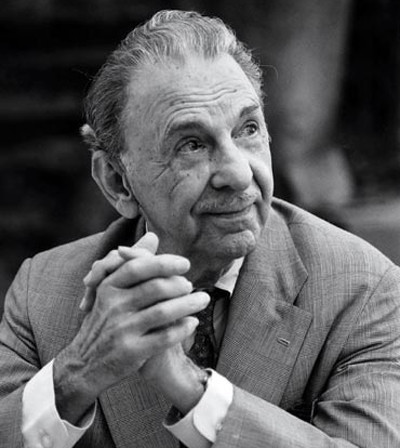

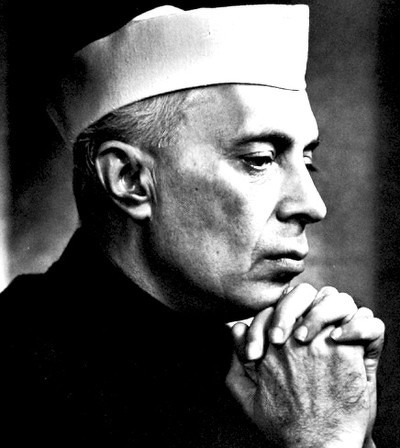
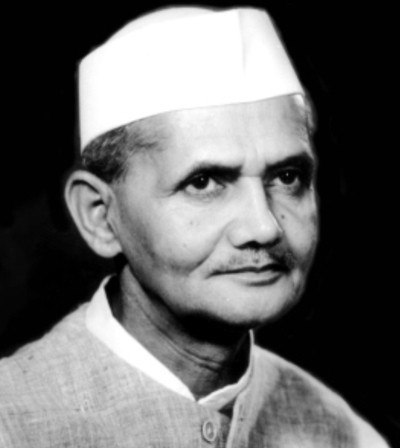
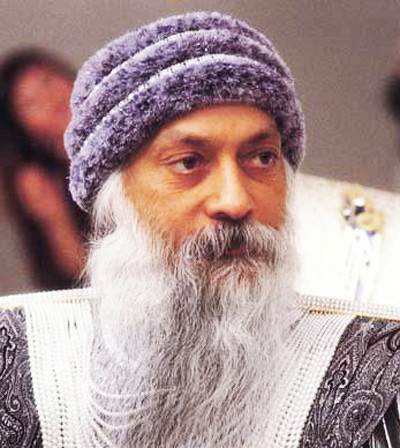

Peeyush Sharma
12 years ago
Vinay Soni
14 years ago
Vivek Vyas
14 years ago
May the soul rest in peace.
May the soul rest in peace.